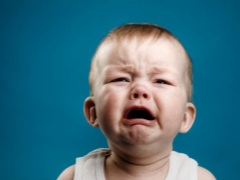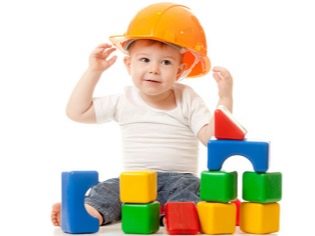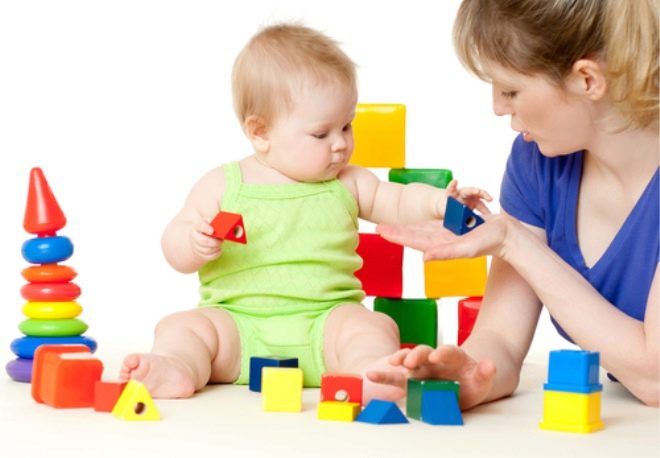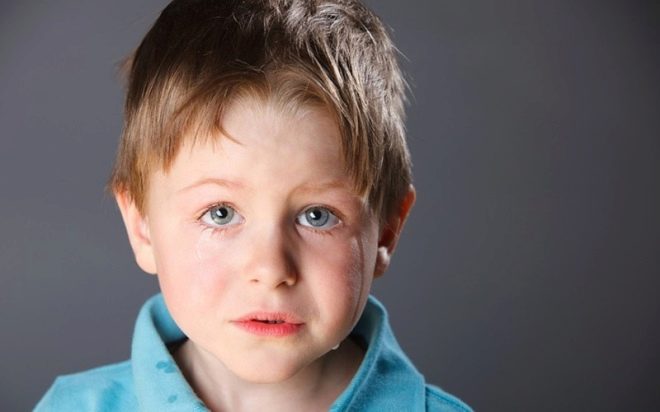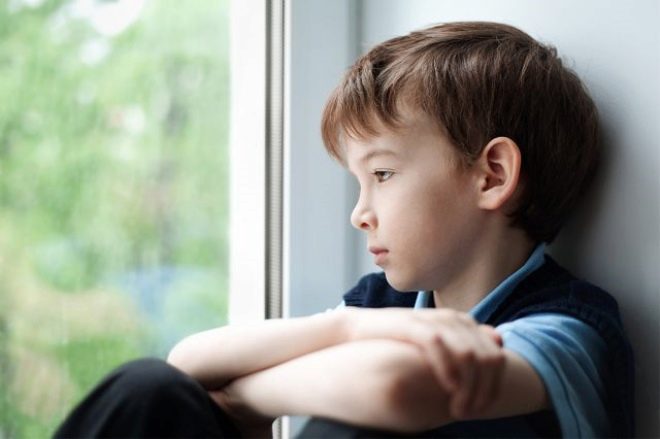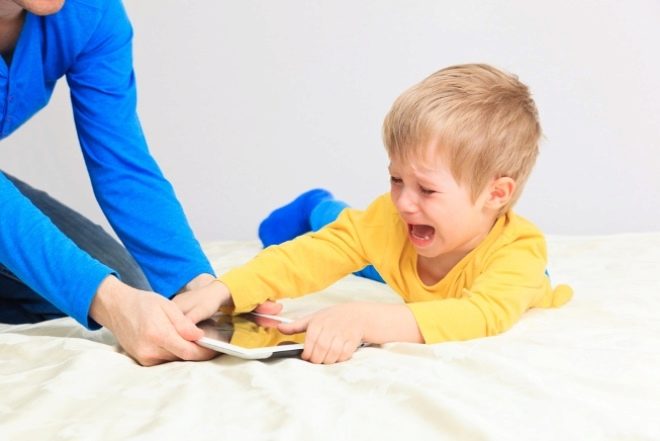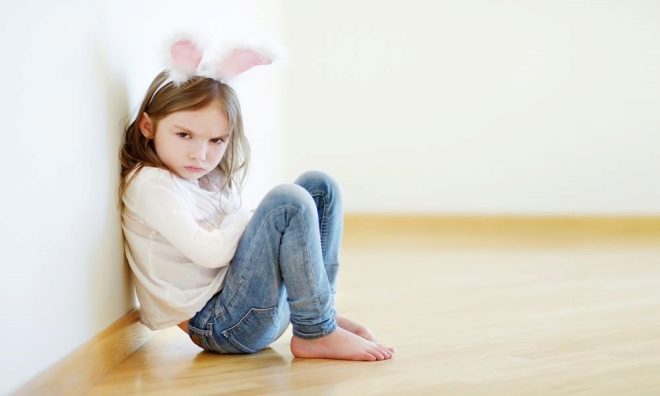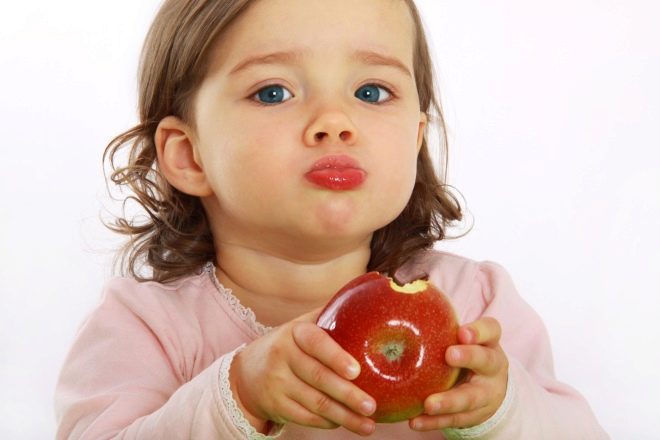Why does a child cry often and how to calm him down?
Small children tend to cry, but the main question is how long it can last. This habit depends on the child’s temperament and other factors, as well as on parenting, parents ’understanding of the problem and other characteristics. If the baby is constantly naughty, and it is difficult to calm him down, it is worth thinking about what is being done wrong.
It is not necessary in the specific case to consider infants and newborns, because they cry to inform the parents about the need to eat, discomfort. After reading this article, you will learn why the "big" child often cries, how to calm him down.
Misunderstanding by parents
A very common reason why a child cries is the banal lack of the “right” reaction from the parents. Almost always in this phenomenon some kind of promise to others - it is not there unless you accidentally found the baby crying, but he didn’t suspect that someone might notice him.
It happens that unsuccessful attempts to reassure only provoke the baby even more, but parents simply do not understand it. There are several common parental misconceptions, a simple rejection of which in some cases is in itself capable of producing the desired result.
Toddlers capable of throwing tantrums for no reason at all do occur, but in reality their percentage is relatively small. Usually the root of evil is in the simple difference in attitudes towards a situation. Adults almost never cry - for this a truly weighty reason is needed, such occur rarely enough. Another thing is children.
In children, the emotional background is much higher than in adults, which is largely due to their inability to defend themselves. This means that many problems for them seem unsolvable, even if mom and dad can fix the situation very quickly.
In addition, children have a strong emotional attachment to various things. For them, the loss of a favorite toy is equivalent to the tragedy of a lifetime, but this does not mean that the child is bad - he is just still small. He is easily upset, but quickly returns to a cheerful mood - such is his age feature. Shout at him for it or do not need to threaten because it will be another unsolvable problem for him.
The absence of tears - an indicator of courage?
If the girl can still cry, then the man - in any case. So many people think. And it does not matter at all that in any other situation the parents will not call their preschooler son a man until he becomes at least a teenager. This is what the child gets used to from childhood. Others may just get bored with his noisy behavior.
However, many modern experts believe that the low average life expectancy for men around the world is due precisely to the fact that they do not cry. Crying is such a natural mechanism for releasing negative energy.. If a woman (even an adult) is able to “discharge” at any moment, then this stern man will definitely leave this negative in himself - he was brought up like this.All this accumulates in the body and creates an additional load on the psyche, and as a result contributes to the speedy wear of the nervous system.
Children tend to cry regardless of gender. Perhaps the crying bearded bodybuilder really looks rather strange, but even he can have his reasons for that, and in the preschool years the boy is even more permissible to cry if he doesn’t really do it for no reason. Want to reassure - explain why his problems are easily solved and unworthy of tears, but the impossibility of crying simply because he is a man is not an argument at all.
Will cry and stop?
If you start from the fact that children shed tears just like that, the most reasonable decision is to not pay attention to what is happening. Here it should be noted that children never roar just like that. Another thing is that with tantrums they may try to achieve what they could never have achieved in words - for example, beg for a new expensive toy. However, even in this case, it is advisable not to ignore such behavior, but to try to rehabilitate the baby.
If the child’s tears do not have a manipulative component at all, then in no case should they be ignored. In this case takes place a message about a specific problem which can not be solved by the child itself, even if it seems simple to you. Ignore such treatment - and cause psychological trauma to your child.
Main reasons
The problem of excessive baby crying can not be solved without delving into the essence of its origin. In some cases, the cause can be quite serious - for example, health problems that cause pain. Even if the baby can already speak, he is not always able to tell about it because of strong excitement or pain.
In addition, other problems are not excluded, when the child is prone to crying due to the peculiarities of his psyche, not caused by specific external factors. It turns out that an excessively tearful child should be examined for a start - it is possible that parents, not physicians, should eliminate the cause.
Another thing, if you know for sure that he is healthy, or have noticed other signs indicating the causes of hysteria, not related to health.
I want, but I do not give
Actually, the most common reason for crying in a relatively “big” age is the desire manipulate around Children are much more cunning than you might think. They noticed a long time ago that as soon as they start crying, around them immediately begin to tear around the adults, seeking to please the baby in everything. Many seek to use it for their own personal purposes.
If the child asks for something, and in case of a calm refusal, he immediately falls into tears, then this is precisely manipulation.
However, one should not think that small manipulators cannot develop a whole strategy - if they are refused, they can even pretend to be sick, as long as the parents want to do everything possible for them.
It has been proven that babies know how to select a crying tone in such a way that it influences surrounding adults as intensively as possible, and some people even consciously train before they ask for something. Such a baby does not just cry, but literally rolls, and even if you have ever caught him at the fact that he is only pretending, it means that the essence of the problem has been found.
Slightly less common is another type of manipulation - intangible. The attention of parents to the child is very important, he will not be satisfied with what you feed him, you buy toys and clothes. He also wants simple communication, emotional contact., and to a greater extent than adults. The latter, however, may not experience similar feelings only because they have many alternatives - family, friends, colleagues, but the child has only parents.
Hard to be a kid
It is also important that adults no longer remember how difficult it is morally to be children.Many do not cry, even breaking an arm or leg, but because everyone can remember how deafening roar because of what now would call a scratch. Having smashed an expensive favorite car, you grab your head and count huge losses, but all this happens without tears. And remember what a loss at one time seemed to be the breakage of one ordinary toy from the dozens that you had.
That you know that you can earn money on a new typewriter or doll in just one hour of work, that the scratched knee will surely heal. The baby has not enough life experience to be sure of it - he perceives everything as an irretrievable loss.
Some children are even more emotional than others at their age.. This may not be a deviation, just some people are more emotional - as opposed to more calm. Such a child simply perceives more acutely - and physical pain, and emotional distress.
This can be noticed by the fact that he cries not in strictly specific situations (when he wants something), but in any relatively suitable circumstances. Including - when many of his peers are already completely calm. It is easy to identify such a child by the general high emotionality - he is excitedly rejoicing, often offended, easily forgiving, maybe upset to the depth by things that are not worth such attention.
He can cry just to draw attention to himself, and in this situation, he doesn’t need anything else - as long as you are distracted from your business and are interested in it.
Psychological reasons
Often the habit of crying has only psychological implications. Many parents complain that the child is crying when she wakes up, and the reason is usually elementary - the baby had a bad dream. In such cases, the baby often cries in his sleep, but does not wake up.
If crying at night is regular, you should contact a psychologist.because permanent nightmares are also a huge problem. It is not excluded, by the way, and the likelihood of various pain or discomfort, but the fact that you first need to be examined by doctors was mentioned at the beginning.
Children are also able to cry because of low self-esteem. This usually applies to those children who have already reached a rather high mental level (in particular, schoolchildren). They can already compare themselves with other children. If it seems to them that they are obviously losing to their peers somewhere, this can be a real personal tragedy.
What is interesting is that some may regret even not so much themselves as their parents, who are allegedly unlucky with the child. And moms and dads still often stir up such a point of view, constantly complaining - if only for the same tearfulness of the children (just in this wording). In this case, the typical childish emotionality only exacerbates the problem, completely closing from the little sufferer that obvious truth that he certainly has some positive aspects. Even if his self-criticism is objective enough - not to mention the fact that many of his own shortcomings can be corrected on his own.
A frequent cause of constant baby crying is the unhealthy atmosphere in the family. Unfortunately, nowadays there are not too many families where mutual love and friendship would really reign, at least respect. On the contrary, constant quarrels are quite typical, and it is good if adults quarrel strictly among themselves, really trying to protect children from their squabbles.
In fact, the kids still can not help but notice that something is going wrong at home.and often mom and dad also break anger at them, which leads to a lot of stress. Firstly, the best method of ejection of a negative is crying, therefore everything is natural. Secondly, stress can loosen the already not very stable child's psyche so much that it is fit to talk about its disturbances, which were formed under the influence of a restless atmosphere at home.If the baby shudders and cries - this is a sign of the seriousness of what is happening, the neglect of the situation and its elementary insecurity in itself and its future.
However, a negative situation may occur not only at home, but also in another social circle - in kindergarten, school, on the street. For most children, the skills of humanism are somewhat alien, they still do not understand how much they can hurt another person, so they like to bully a weaker person or someone who seems to them wrong.
The problem is especially aggravated if, for some reason, a child suffering from such antics is deprived of social communication skills and either has no friends at all, or there are very few of them (compared to conventional enemies). The result is a clear distortion of the picture of the world, possibly a decrease in self-esteem (which, as already mentioned, can also be the cause of crying), and another resentment can make such a baby cry that only gives offenders another reason to catch him in weakness.
The inability to find a place in the team and make friends is the main reason why a child even up to ten years old cries in the camp.
What not to do?
In an effort to wean the child to cry for any reason, the overwhelming majority of parents resort to methods that may have silenced the baby, but can lead to even more serious problems. The advice of any adequate psychologist in this situation includes the strictest ban on certain types of behavior that a typical modern adult uses:
Screams, threats, and especially physical abuse
Even if you understand that a child is crying just to beg for something, it is not pedagogical to raise your voice or threaten to give the baby “over to that uncle”, and physical violence in any form is strictly prohibited.
For a small (albeit capricious) child, you are the only protection and support, even if he, in a rage, can loudly wish himself other parents. If you present yourself as a danger to him, you risk losing contact with him forever.
The kid will simply close in his inner world, and it’s good if he doesn’t form a point of view on shouting, threats and cruelty as the only way to achieve something in life.
Indifference
Regardless of whether the child is crying for a reasoned (at least for him) reason, or simply pretending, it is unacceptable to pretend that nothing is happening. Firstly, if the problem really exists, you can’t help to solve it, and the little child has too little of its own resources to solve the problems on its own.
Secondly, the kid may form an opinion that no one needs him - and you will agree, in part, he turns out to be right. This can lead either to closure and cooling of relations with parents, or to a decrease in self-esteem, whereas both results ultimately lead to the same tears, and even to more global problems.
A statement of the inadmissibility of crying in general
In this case, it is usually assumed that in the present conditions no single reason even theoretically can serve as a sufficient reason to cry. "You're already an adult," "you're a man" - this is not a requirement to be an adult or a man and a clear order to be iron. Even adults are rare, and children are even more so, but when they hear this argument, they will do their best not to cry.
I do not want to let my parents down, nor to show myself from the supposedly worst side, even if the reason is valid. As a result - the inability to throw out stress, the accumulation of which in the body will lead to a nervous breakdown. A child must independently go so far that most of the problems are not worth the tears, and it is possible to throw these phrases only when the child is already at least eight years old.
Girls may also cry in their teens - then tell them that the real lady in a critical situation loses consciousness, but almost never cries.
To fulfill absolutely any wishes of a crying child.
If you see that a tantrum is going on purposefully, in an attempt to dictate its own rules, do not take in head to accept the conditions of a small terrorist, even if this seems to be the easiest way to achieve silence.
First, once you have shown your child how to influence you, you can never stop him or effectively influence him. Secondly, knowing that it will work, the baby will get flustered and will not even think about the fact that in order to fulfill your own desires, sometimes you need to do something or give it in return.
It is clear that such a scheme will not work anywhere except the parent home, but it will be extremely difficult for a matured child to reorganize and learn to achieve the desired result from outsiders, who can easily say no.
Recommendations to parents
If you are tired of listening to baby crying, but you want to calm the child not only effectively, but also so as not to harm his psyche, follow the simple tips and it will work out:
- Do not cry, but tell me. Tears are a signal to an adult that there is a certain problem. Crying children own from birth, but they learn to talk later, so there is nothing surprising in the fact that in the early stages they use a simpler and better known method.
Explain to the baby that you cannot understand the reason for his tears precisely because he cries and speaks indistinctly. But if he clearly explains it in words, you will do everything to help.
- Set an example of calm. A crying baby is unlikely to calm down if he receives a tantrum in response to his “distress signal”. If the problem is real, your peace of mind will be passed on to the child. In the case when this is an ordinary children's manipulation, the easiest way to stop it is to visually show that it does not act on you.
- Distract. Since children even perceive frivolous problems as large-scale grief, it can be very difficult in a logical way to convince them that the situation is absolutely not worth the tears. Another thing is that the problem is really small, and children's memory has a short duration.
The kid easily gets upset, but also quickly departs - under the action of something good. Accelerate the process: offer a child to read a fairytale right now or cut an apple.
- Understand and forgive. If the child is just too sensitive, do not scold him, but show that you appreciate him anyway. First, sooner or later, he will realize that he is at least lucky with his parents, but the sensitivity concerns not only negative emotions, but also positive ones. Secondly, he will become even more attached to you, noting that you are one of the few who never makes him sad.
- Maintain grief and joy. If one-time support just allows you to survive an emotional outburst, then continued support makes the child more confident, and surely they don't cry. They quickly understand that everything can be overcome. In addition, it also gives the child a useful behavior in his future life.
- Explain why you shouldn't cry. Only not in the abstract (“as you can, you are a man”), but in a certain way in each specific situation. Knee will heal, you are better than your offenders, instead of broken then there will be other cars - and so on.
All this should be done in a calm atmosphere, without crying, but at the same time - clearly and understandably even for a small child. Do not count on the fact that the baby learns the first time. We'll have to repeat, but patience is the key to success.
- Come up with a reward for good behavior. This moment is quite difficult to calculate, because the refusal of reward for crying will be perceived as a punishment, and it has already been noted that it is impossible to punish children for tears. This method should probably be used only with children who have reached a sufficiently conscious age - for example, with younger students who are already able to draw logical (and not far-fetched) conclusions.
- Ponder, not whether the parents themselves are to blame for what is happening.. Think about whether you did everything to ensure that the baby has a happy childhood. Only evaluate from the position of the child - he does not understand the scale of your victim in the form of two works at once. Perhaps he wants to just communicate with him more. Perhaps he would even consciously agree to go for a ride to the park by bus, and not by car, if only the angry parents tired of the two jobs did not quarrel daily.
There are many reasons for crying. It can be difficult for young parents to deal with children crying and learn to understand their child. We offer a video about this to look further.
